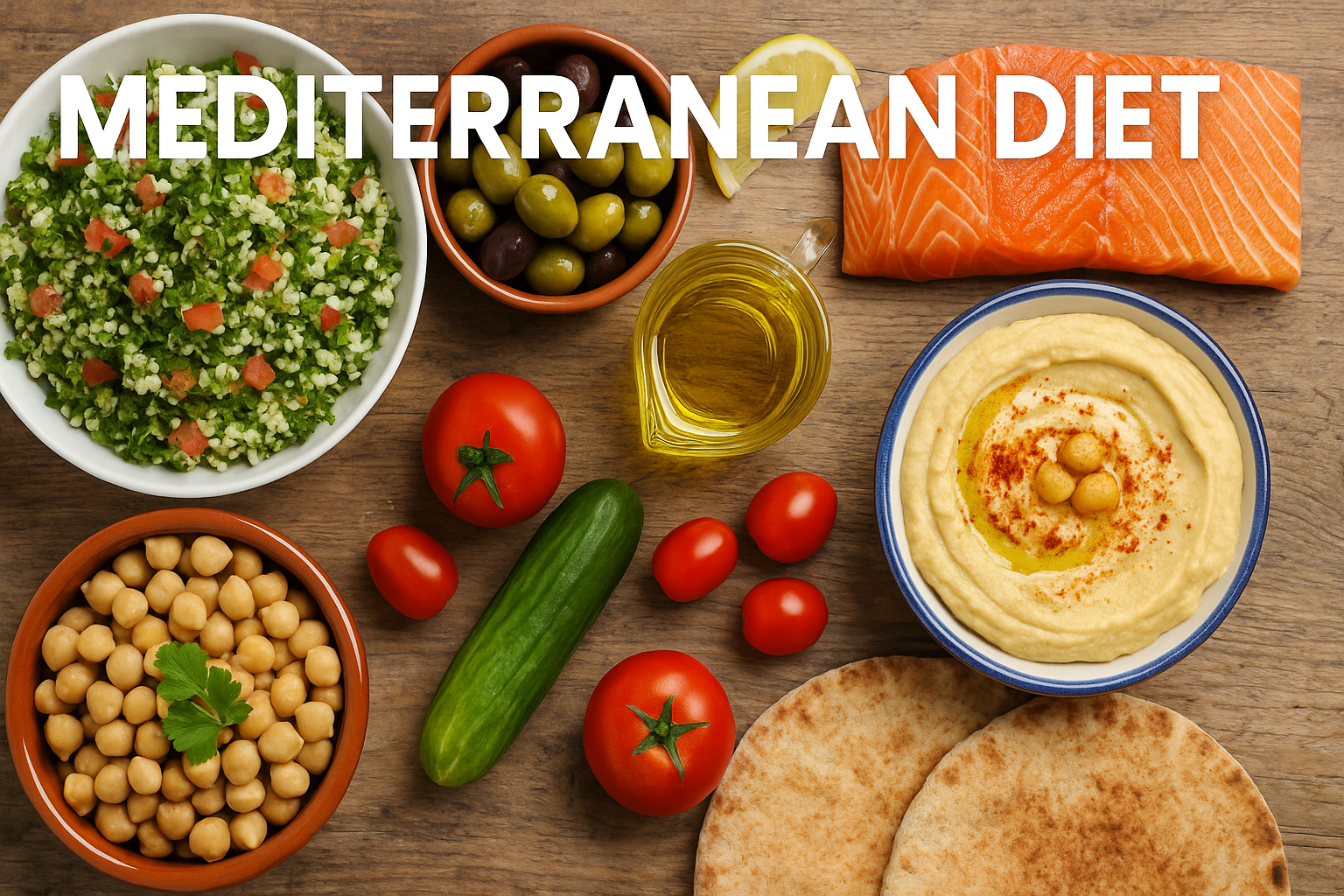The Mediterranean diet has long been praised for its impressive health benefits, delicious flavors, and sustainable lifestyle approach. But what exactly is the Mediterranean diet, and how can you create your customized Mediterranean diet plan tailored to your personal needs and preferences? Let’s explore.
What is The Mediterranean Diet?
The Mediterranean diet is a way of eating inspired by the traditional dietary patterns of countries bordering the Mediterranean Sea, such as Greece, Italy, and Spain. It’s not a strict meal plan but rather a lifestyle focused on whole foods, healthy fats, plant-based ingredients, and balanced eating.
Key components of the Mediterranean diet include:
Fruits and vegetables: A wide variety of seasonal produce forms the foundation.
Whole grains: Foods like oats, brown rice, and whole-grain bread.
Healthy fats: Primarily from extra virgin olive oil, nuts, and seeds.
Lean proteins: Fish and seafood are staples, with moderate amounts of poultry, dairy, and eggs.
Legumes: Chickpeas, lentils, beans are essential.
Herbs and spices: Flavors are enhanced naturally, minimizing the need for salt.
Red wine (optional): Consumed in moderation.
This eating pattern emphasizes fresh, minimally processed foods and enjoying meals with family and friends, promoting both physical health and emotional well-being.
Proven Health Benefits
Studies have consistently linked the Mediterranean diet to:
Heart health: Reduces the risk of heart disease and stroke.
Weight management: Supports healthy weight loss and maintenance.
Reduced inflammation: Thanks to antioxidant-rich foods.
Lower risk of chronic diseases: Such as Type 2 diabetes, Alzheimer’s disease, and certain cancers.
Improved mental health: Boosts mood and cognitive function.
How To Create Your Customized Mediterranean Diet Plan?
Creating a Mediterranean diet plan that fits your lifestyle is simple and flexible. Here’s a step-by-step guide:
1. Assess Your Current Eating Habits
Start by reviewing your usual diet. Identify areas where you can substitute processed or high-fat foods with Mediterranean-friendly alternatives. For example, swap butter for olive oil or processed snacks for nuts and fruits.
2. Stock Your Pantry
Having the right ingredients on hand makes it easier to stay on track:
Olive oil (extra virgin preferred)
Whole grains (quinoa, bulgur, barley)
Canned or dried legumes (chickpeas, black beans)
Nuts and seeds (almonds, walnuts, sunflower seeds)
Herbs and spices (oregano, basil, rosemary, cumin)
3. Plan Your Meals Around Plants
Focus each meal on vegetables, fruits, whole grains, and legumes. Aim for at least half your plate to be plant-based foods.
Sample daily structure:
Breakfast: Greek yogurt with berries and a drizzle of honey
Lunch: Quinoa salad with cucumbers, tomatoes, and feta cheese
Dinner: Grilled salmon with roasted vegetables and brown rice
Snacks: Fresh fruit, nuts, or hummus with carrot sticks
4. Choose Healthy Proteins
Prioritize fish and seafood twice a week. Enjoy poultry, eggs, and dairy in moderation. Save red meat for occasional consumption.
5. Use Olive Oil Generously
Replace butter or margarine with olive oil for cooking and dressing salads. Its monounsaturated fats are heart-healthy and full of antioxidants.
6. Season with Herbs and Spices
Enhance flavors naturally without relying on excess salt. Fresh basil, mint, parsley, oregano, and thyme are staples of Mediterranean cooking.
7. Practice Mindful Eating
Eat slowly, savor your food, and enjoy meals with others when possible. This approach improves digestion and satisfaction.
8. Customize Based on Your Goals
Weight loss: Focus on portion control and balance.
Muscle building: Increase protein-rich foods like legumes, fish, and Greek yogurt.
Improving heart health: Emphasize omega-3-rich foods like salmon, walnuts, and chia seeds.
9. Stay Hydrated
Drink plenty of water throughout the day. Red wine can be included (up to one glass per day), but it’s completely optional.
Conclusion:
The Mediterranean diet is more than just a diet; it’s a way of life focused on health, flavor, and community. By creating a customized Mediterranean diet plan that fits your unique lifestyle, you can enjoy delicious meals while boosting your overall well-being.


